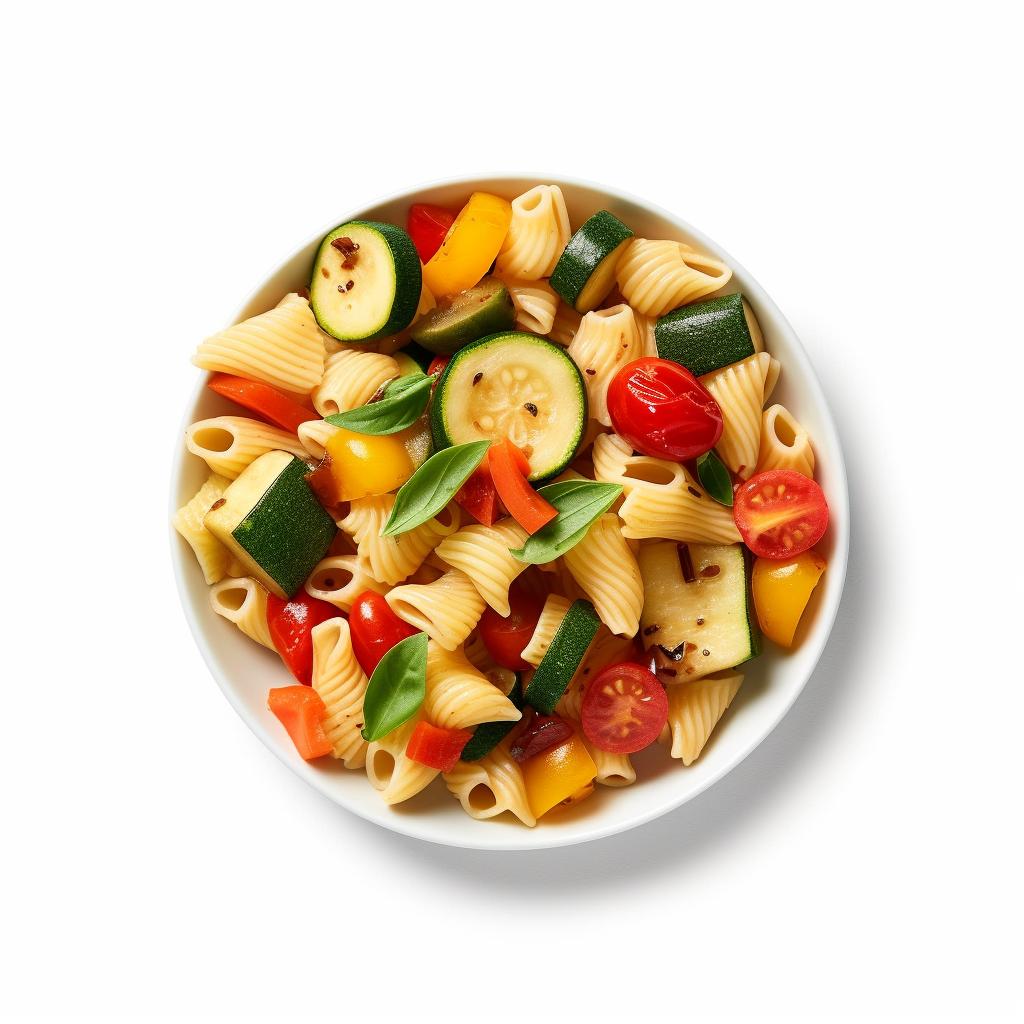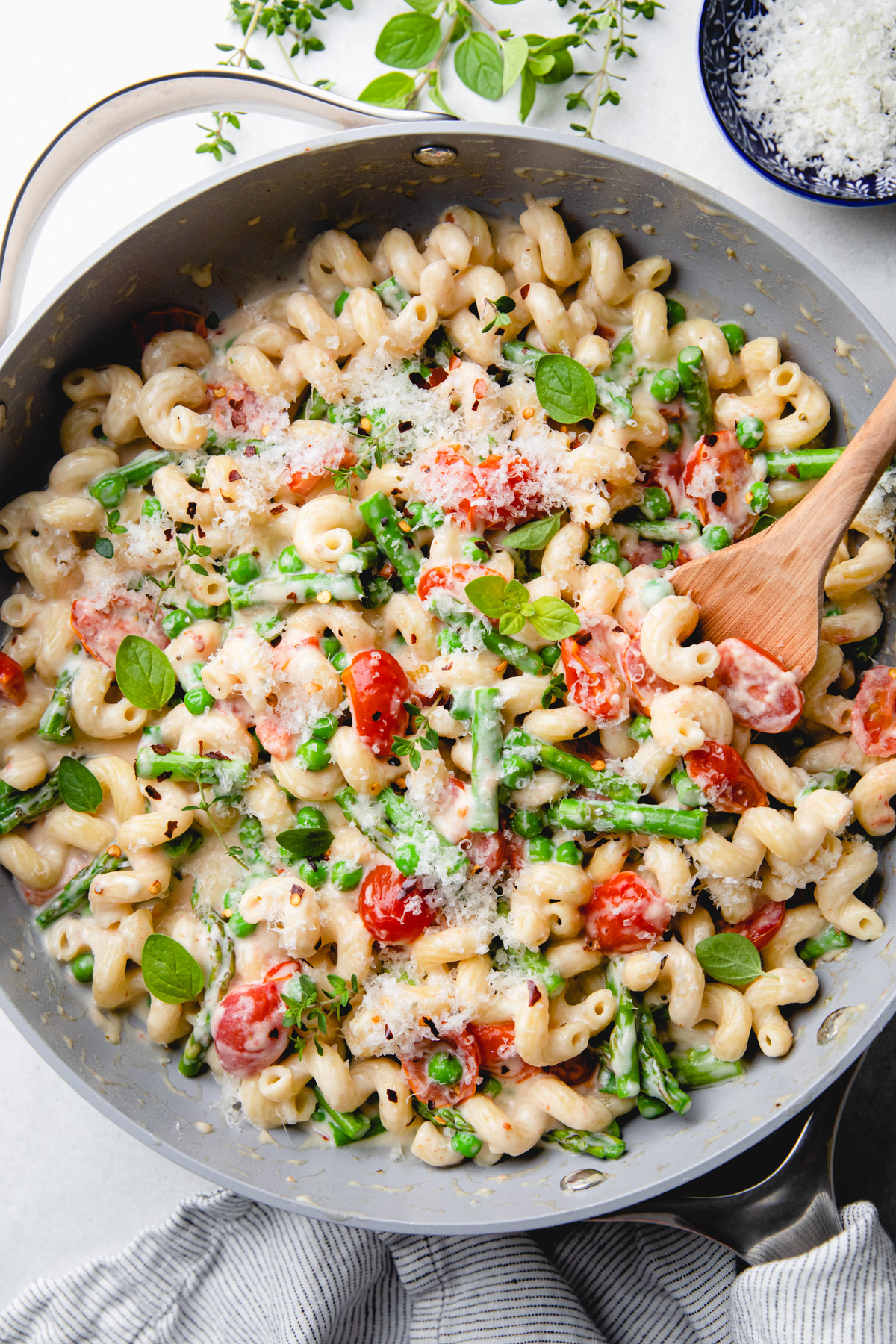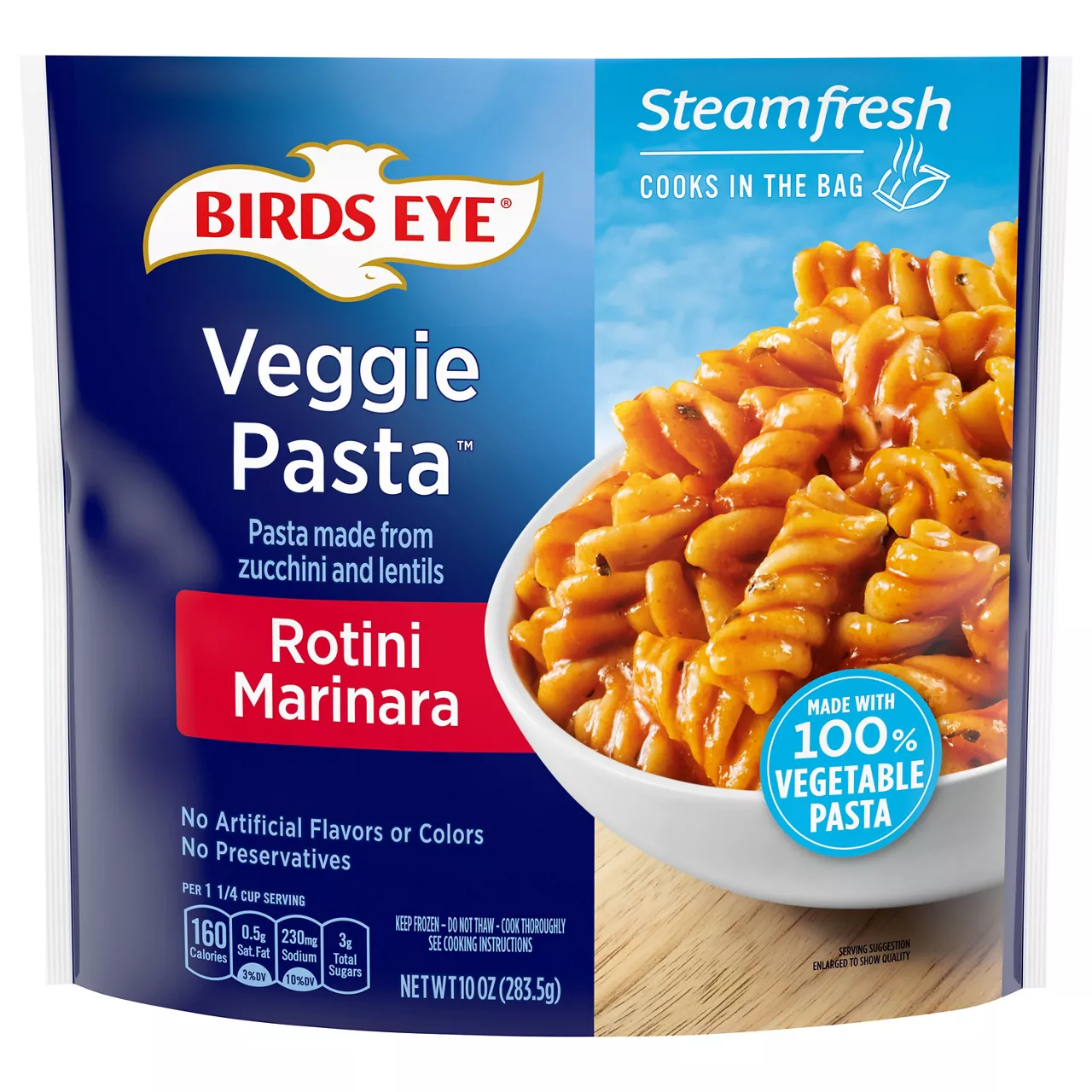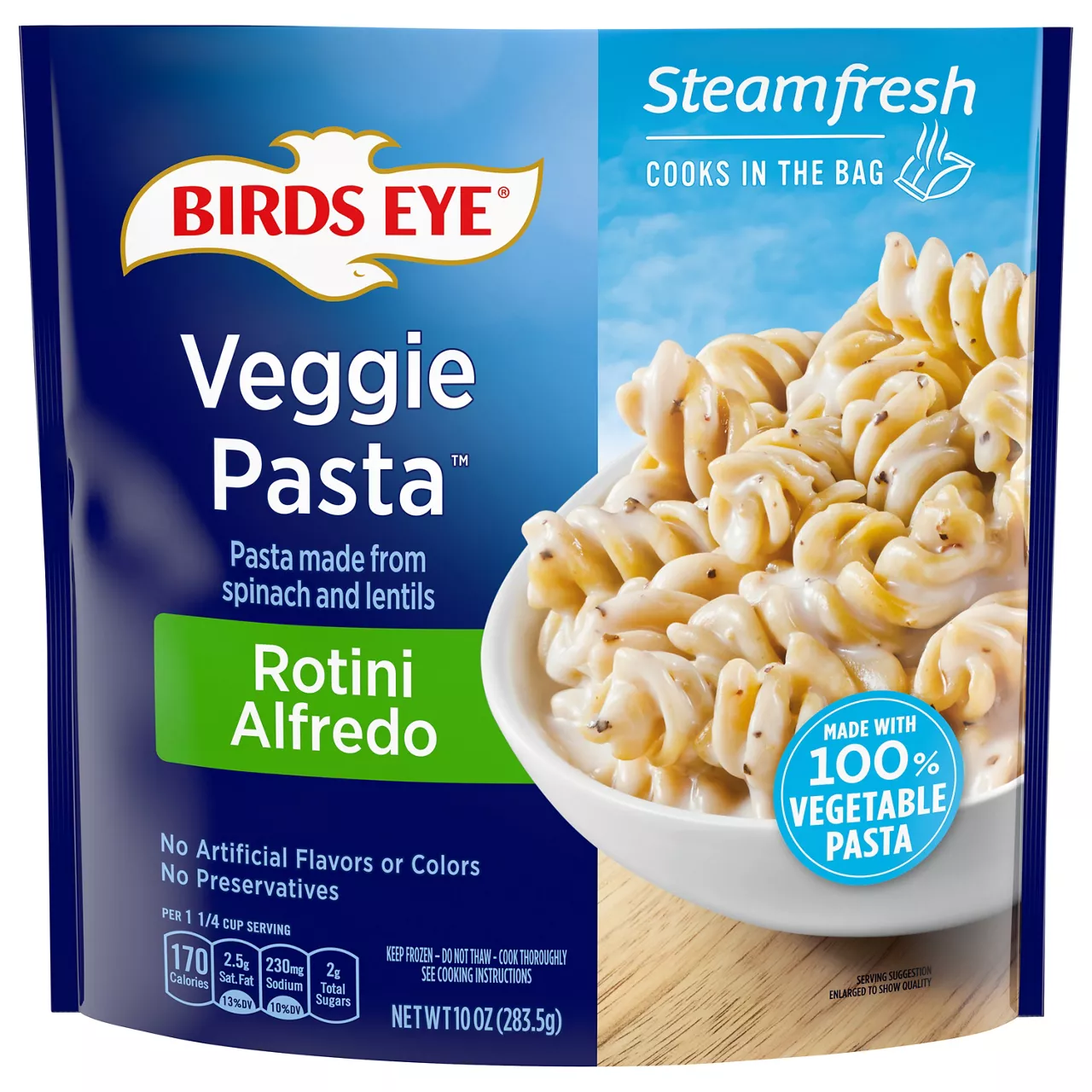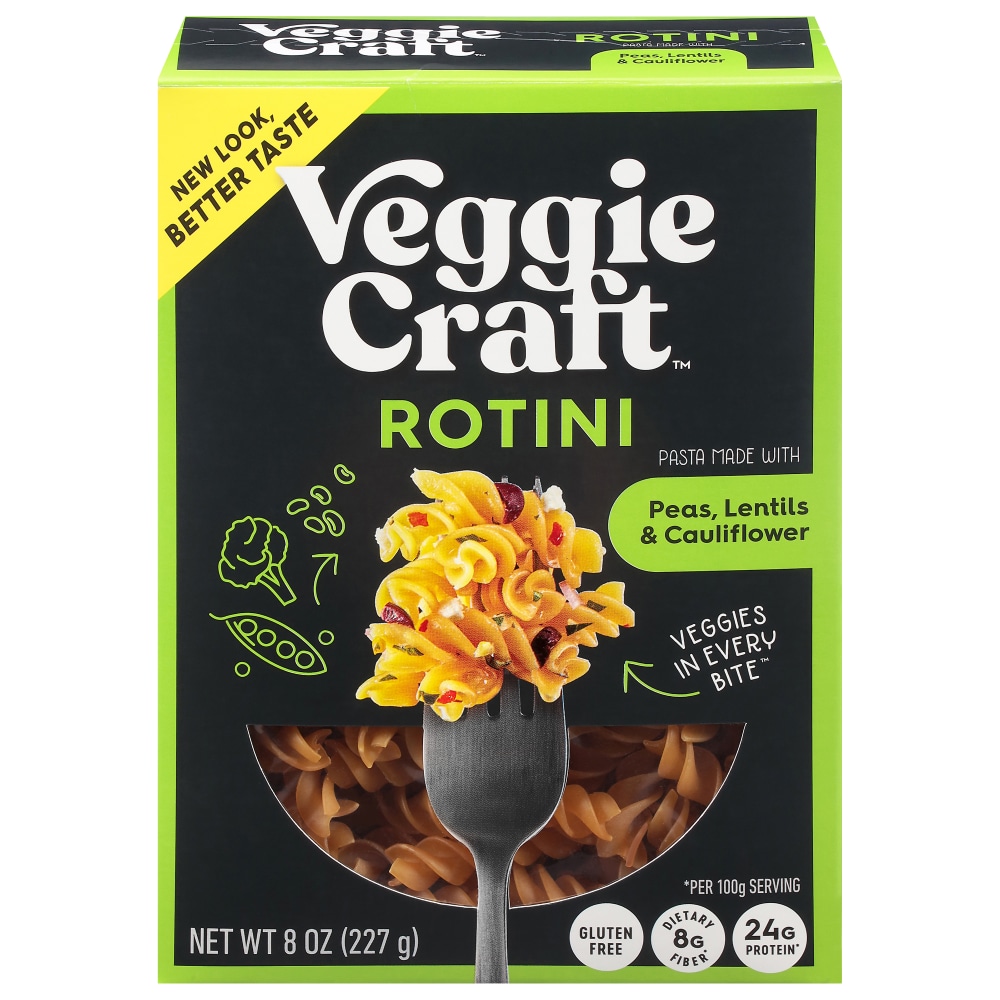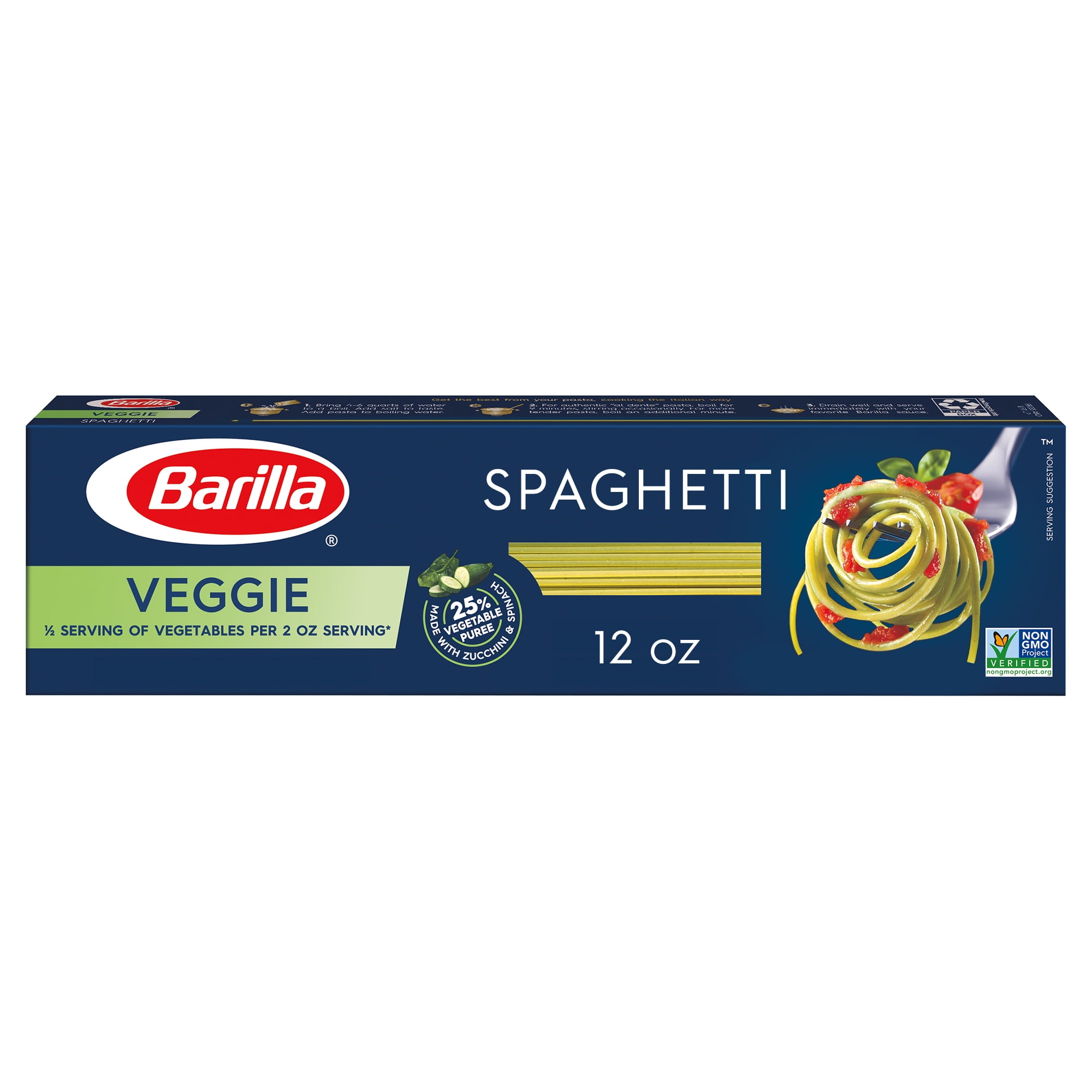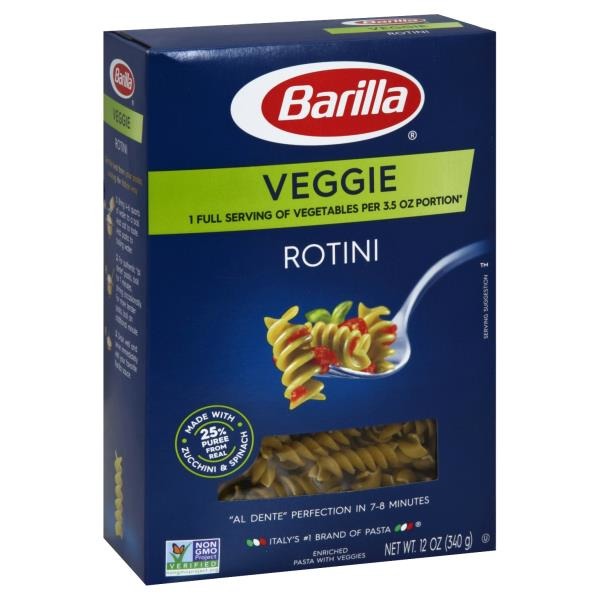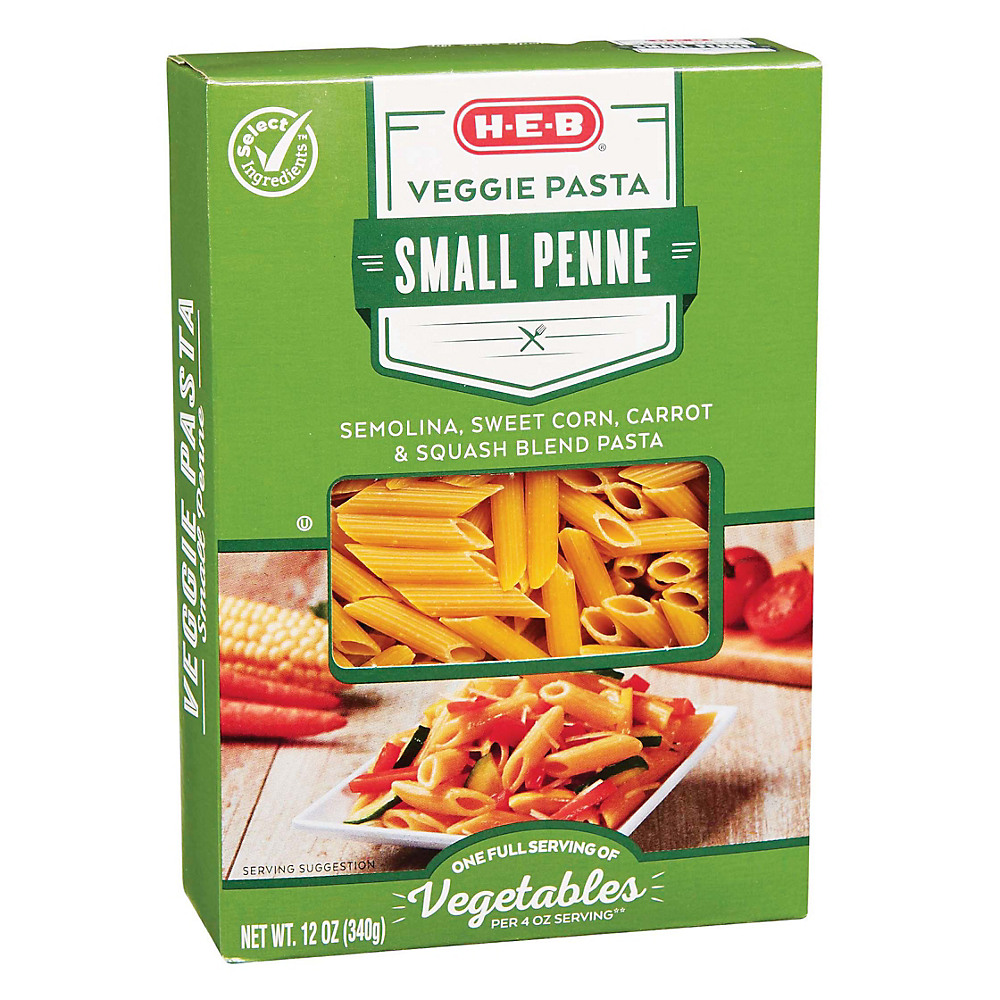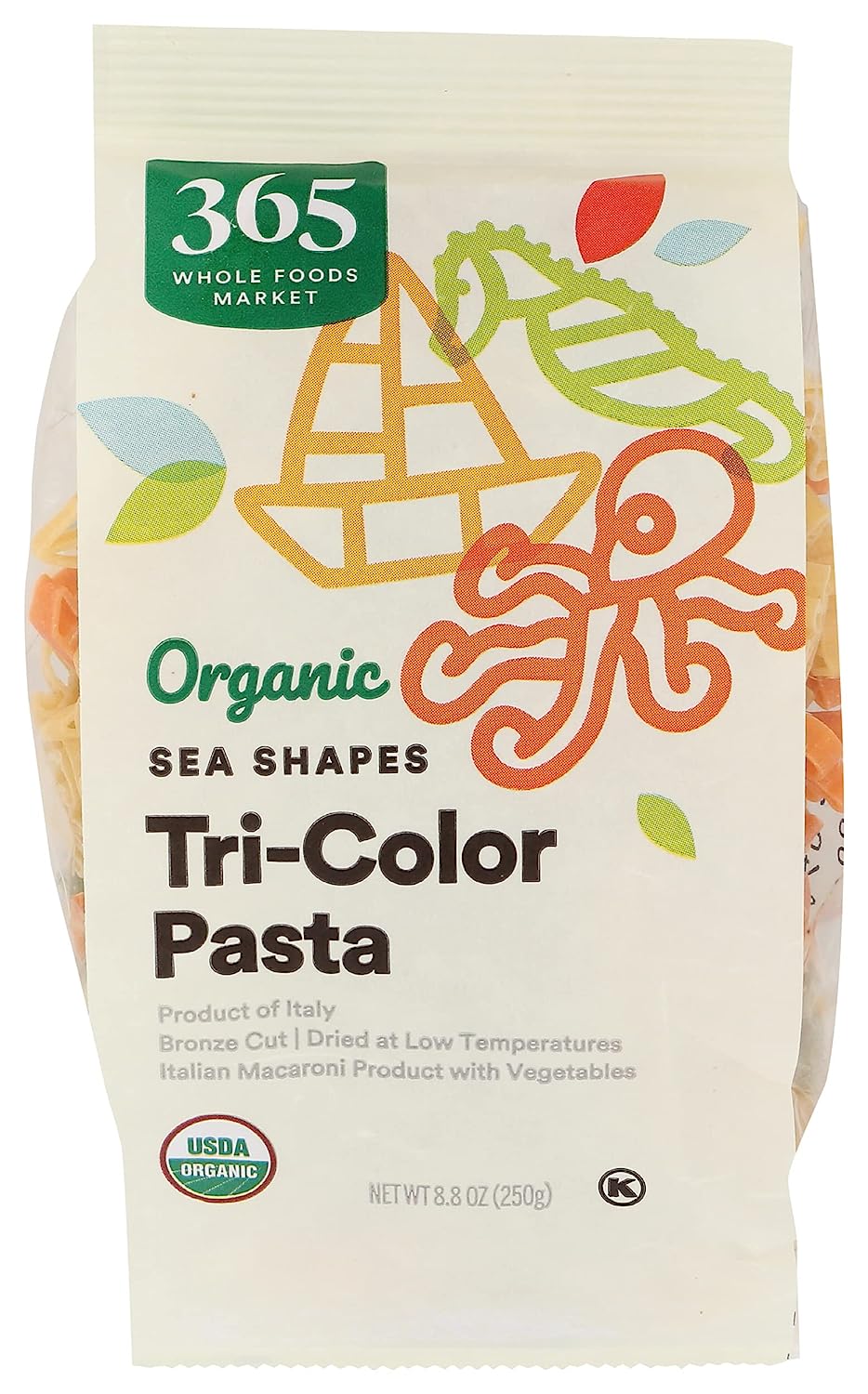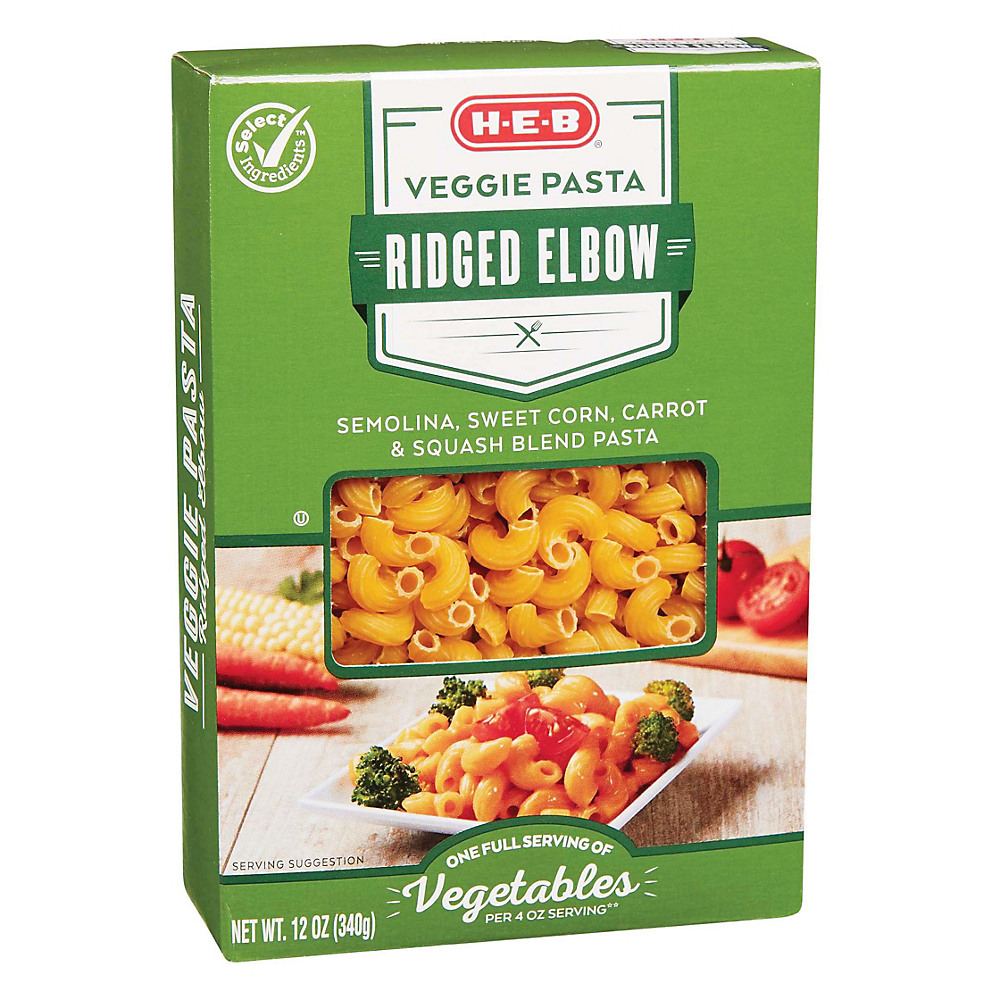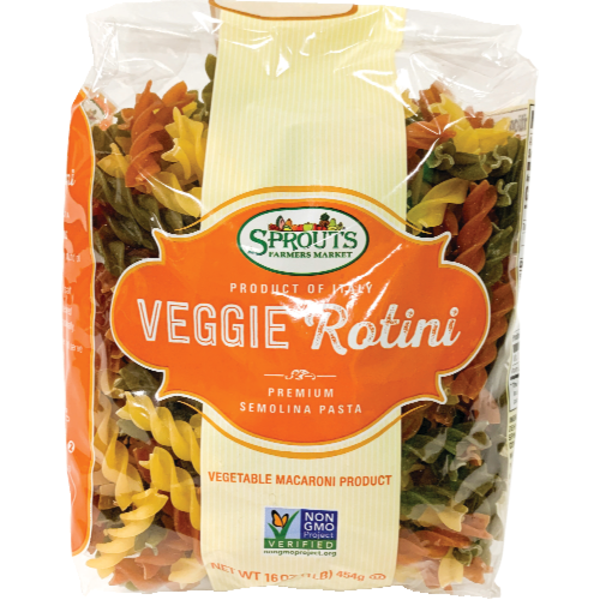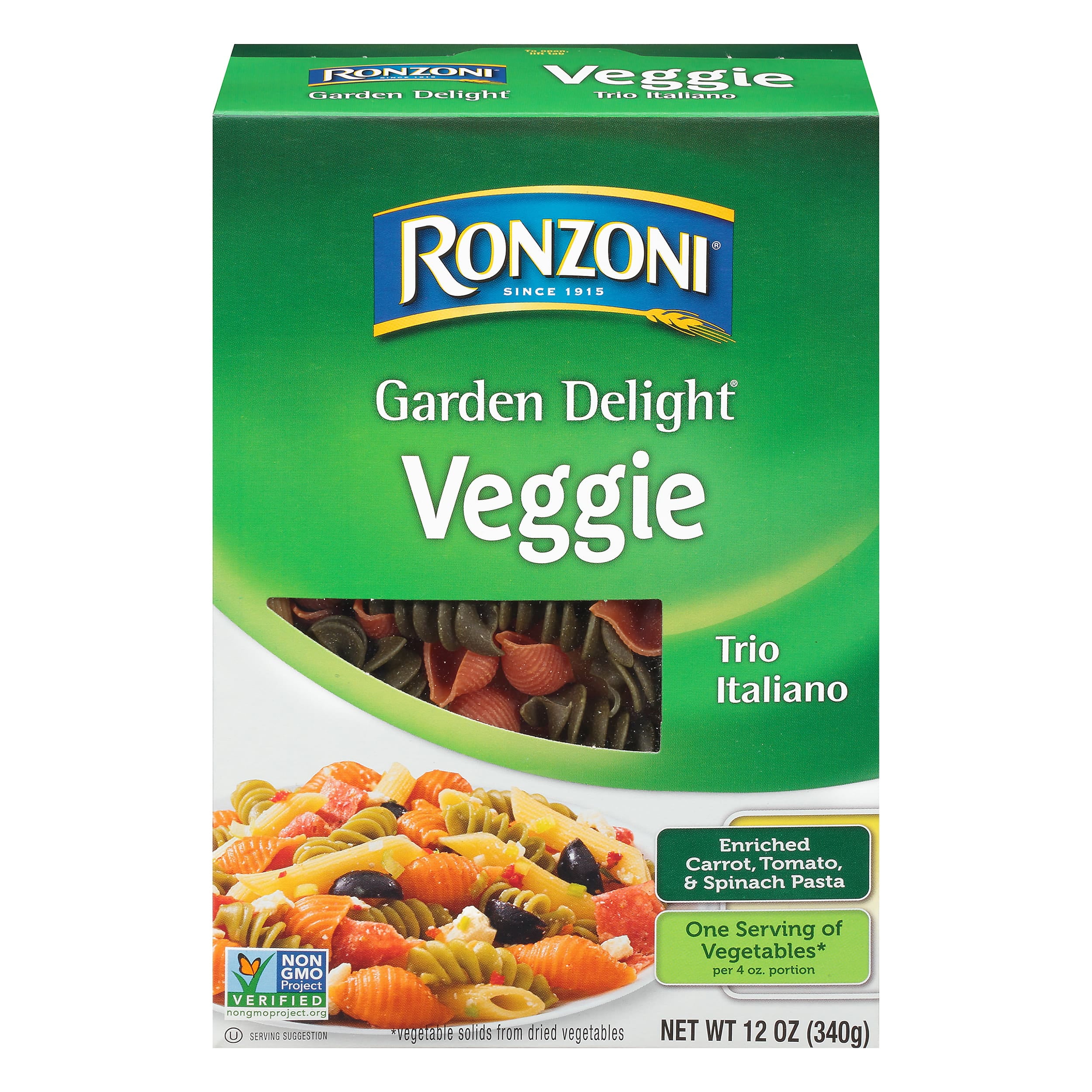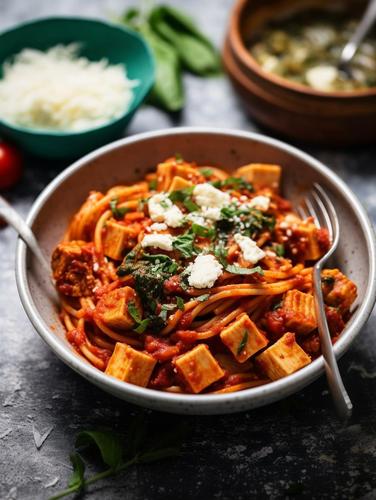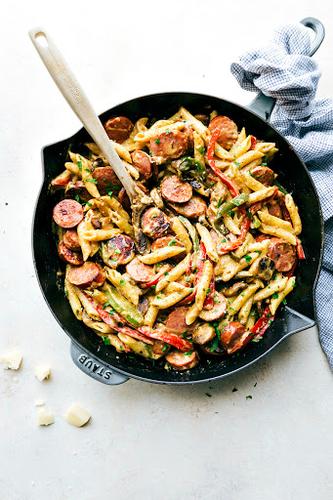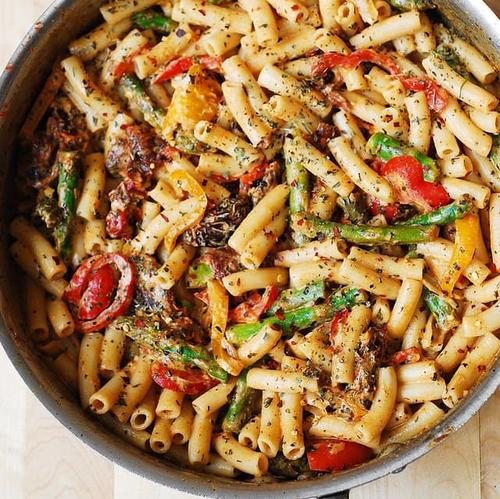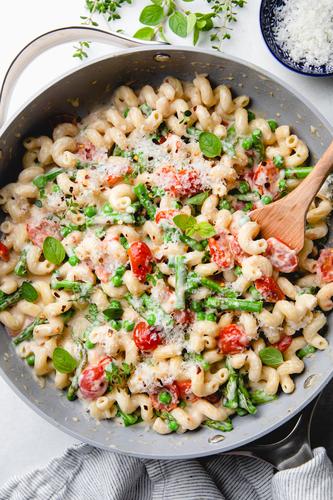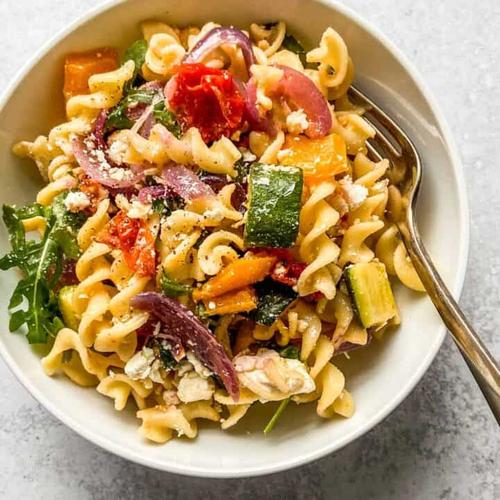Vegetable Pasta
Vegetable pasta offers a nutritious twist to traditional pasta by incorporating vegetables into its ingredients. This variety of pasta is commonly made from a blend of flour and vegetables such as spinach, tomatoes, beets, or carrots, resulting in different colors, flavors, and nutrient profiles. It acts as a healthy alternative for regular pasta, especially for those who are seeking ways to increase their vegetable intake.
Including vegetable pasta in meals is an excellent choice for home cooks since they are easy to prepare and pair well with a range of sauces and accompaniments. It’s also a brilliant way to introduce vegetables into kids’ diets, as the vibrant, appealing colors can surely catch their attention. Remember to cook it al dente for the best texture and to retain maximum nutritional value.
82%
CARBS
2%
FAT
16%
PROTEIN
Featured Articles
52 Vegetable Pasta Products
Birds Eye Veggie Pasta Rotini Marinara
Birds Eye Veggie Pasta Rotini Alfredo
Veggiecraft Rotini Pasta Peas, Lentils and Cauliflower - Case of 6
Barilla Veggie Spaghetti Pasta
Barilla Veggie Rotini
H-E-B Small Penne Veggie Pasta
365 by Whole Foods Market, Pasta Sea Shapes Tri Color Organic, 8.8 Ounce
H-E-B Semolina, Sweet Corn, Carrot & Squash Blend Veggie Pasta, Ridged Elbow
Sprouts Veggie Rotini Pasta
Ronzoni Garden Delight Trio Italiano Pasta Blend
11 Recipes for Vegetable Pasta
5
Hearty Tofu and Tomato Veggie Pasta
4
Creamy Chickpea and Vegetable Pasta
7
One Pot Creamy Cajun Sausage & Veggie Pasta
66
Vegetable Pasta with Bell Peppers and Asparagus in a Creamy Sun-Dried Tomato Sauce
2
Creamy Vegetable Pasta
305
Roasted Veggie Pasta with Feta
1
Spring Veggie Pasta
6
Quick and Easy Roasted Vegetable Pasta
Vegetable Pasta FAQ
Can I use gluten-free pasta for vegetable pasta?
What type of pasta should I use for vegetable pasta?
Do I need to cook vegetables before adding them to pasta?
What vegetables go well in vegetable pasta?
How do I cook pasta properly?
How can I make vegetable pasta creamier?
How should I store leftover vegetable pasta?
Can I add meat to vegetable pasta?
Expiration & Storage Tips
When does Vegetable Pasta expire?
Unopened, vegetable pasta can last for up to two years past the printed date on the package. Once opened, ideally you should use the vegetable pasta within one week, but it could last up to two weeks if stored properly. If you've cooked the vegetable pasta, it should be consumed within 3-5 days when stored in the refrigerator. Uncooked vegetable pasta can also be frozen for up to 8-12 months for a bit of an extended shelf life.
How do you tell if Vegetable Pasta is bad?
You'll know your vegetable pasta has gone bad if it develops an off smell or if it becomes very hard and would not soften when soaked in boiling water. Also, if you see any mold or discoloration, it's a clear indication the pasta has spoiled.
Tips for storing Vegetable Pasta to extend shelf life
• Always keep your vegetable pasta in an airtight container or sealable plastic bag.
• Store in a cool, dry location away from any moisture, heat, and direct sunlight.
• Cooked vegetable pasta should be placed in shallow containers for quick cooling and then refrigerated.
• For longer storage, uncooked vegetable pasta can be frozen. Just make sure it's well-sealed to avoid any moisture getting in.
Health Info
Macros
102g
CARBS
2g
FAT
20g
PROTEIN
Allowed on these diets
VEGETARIAN
LACTOSE FREE
Contains these allergens
WHEAT
